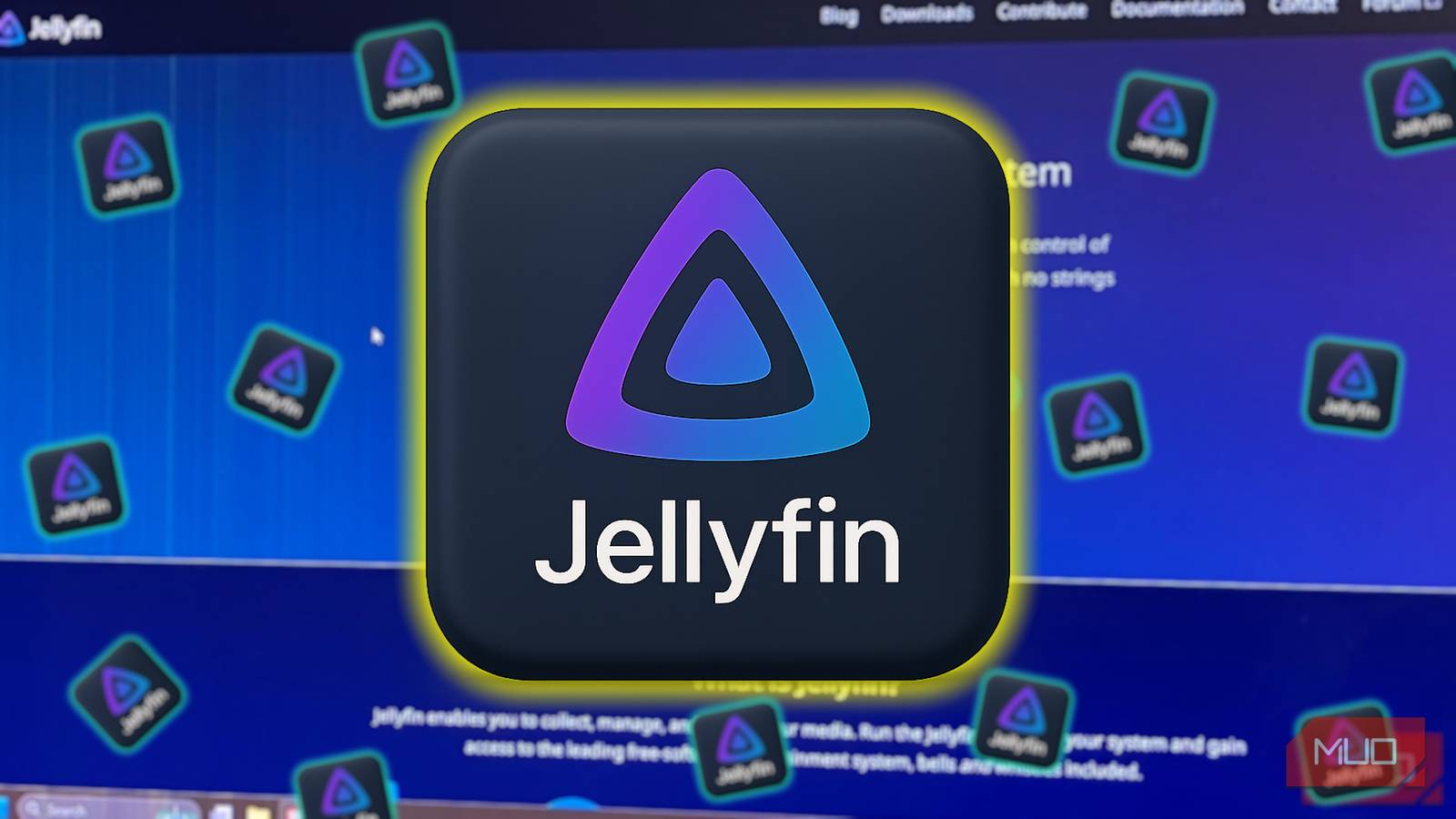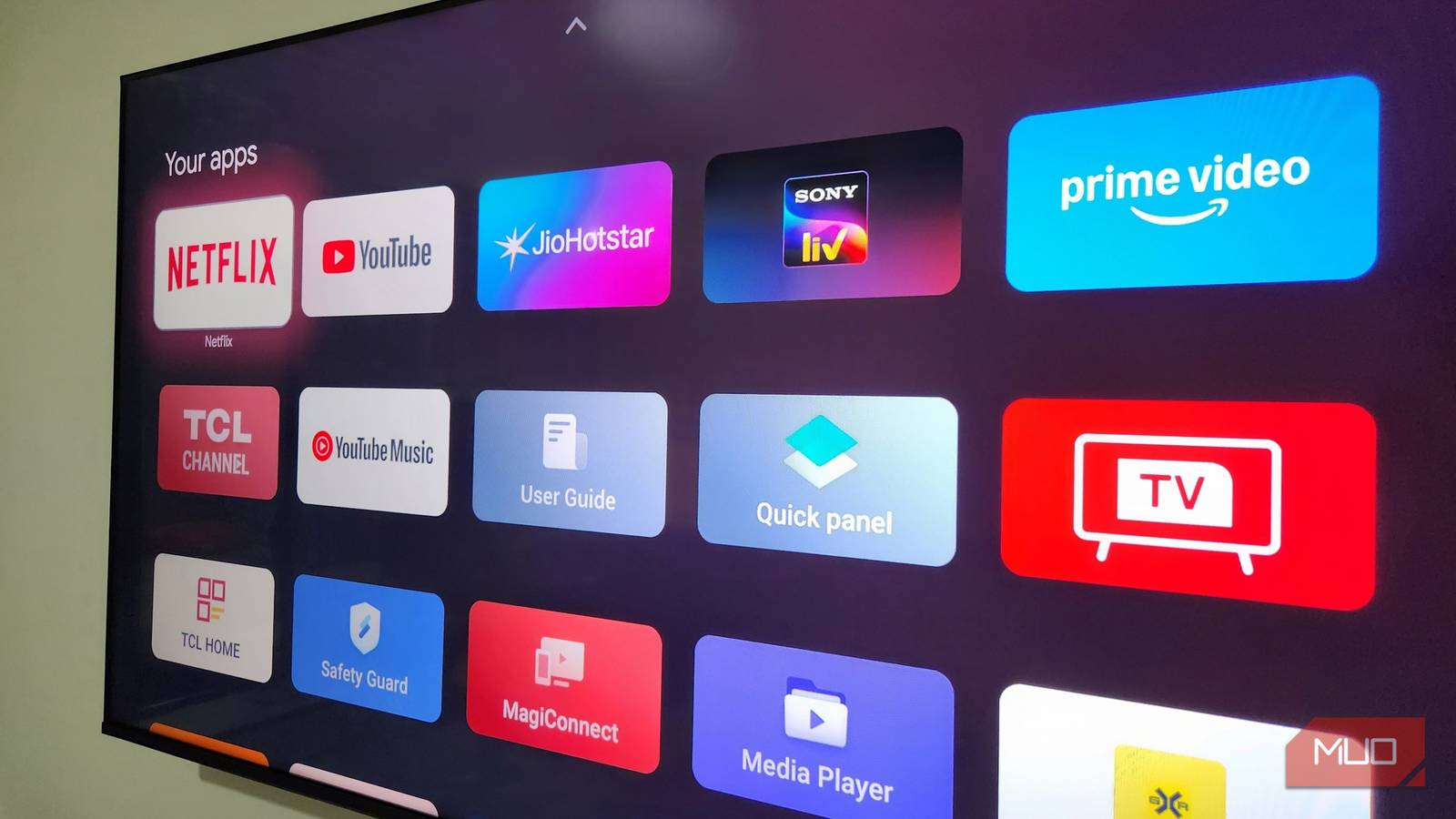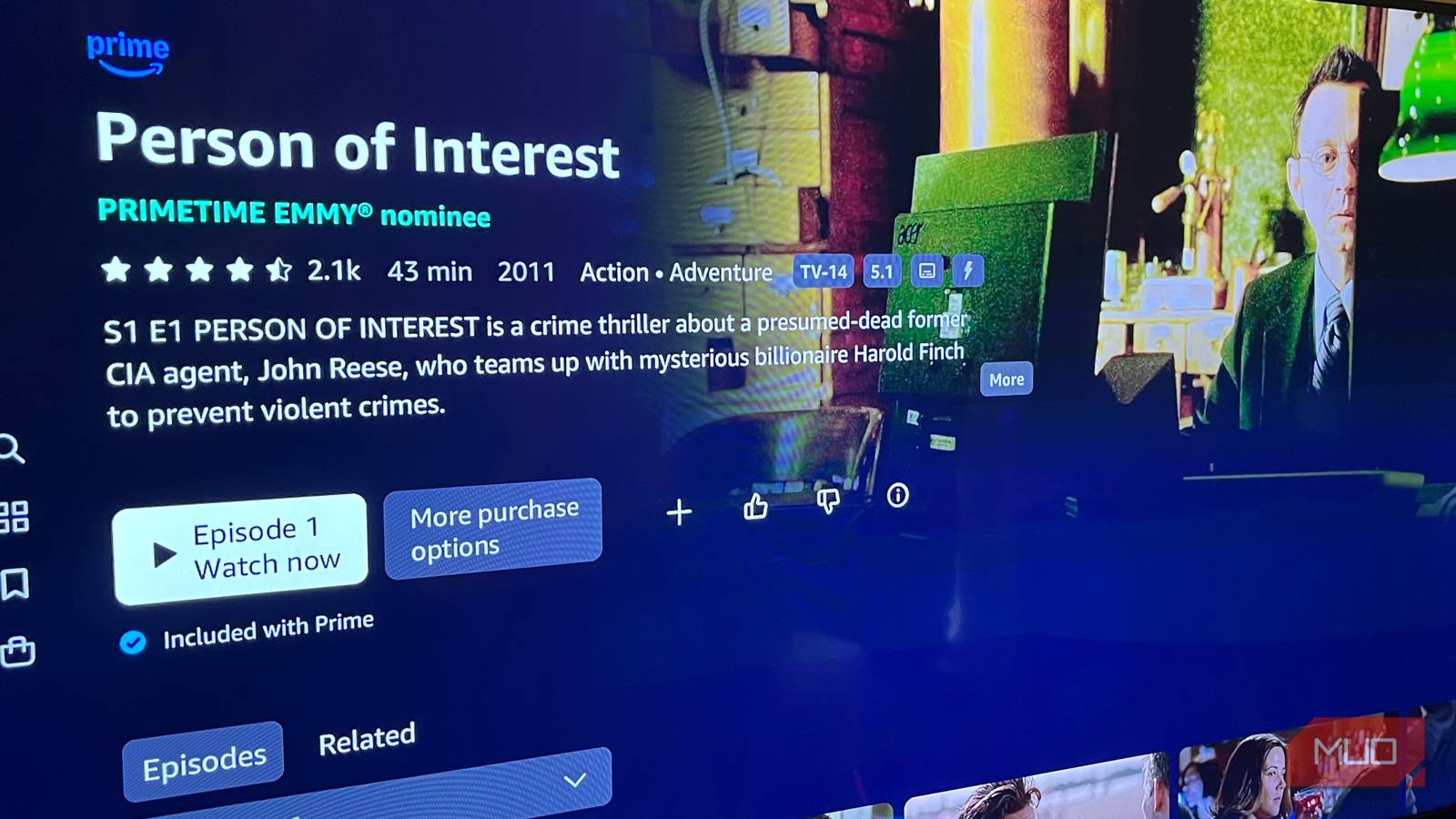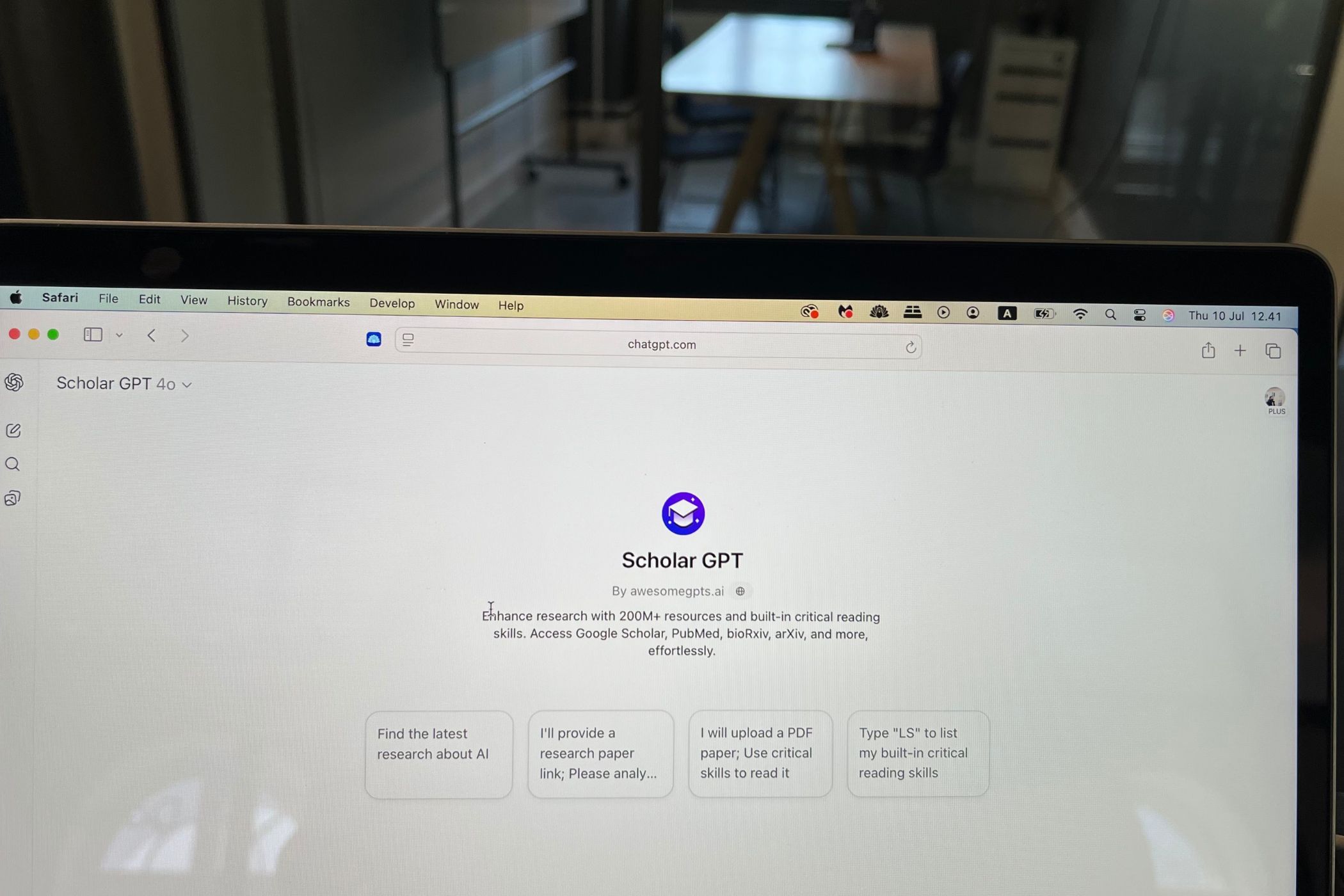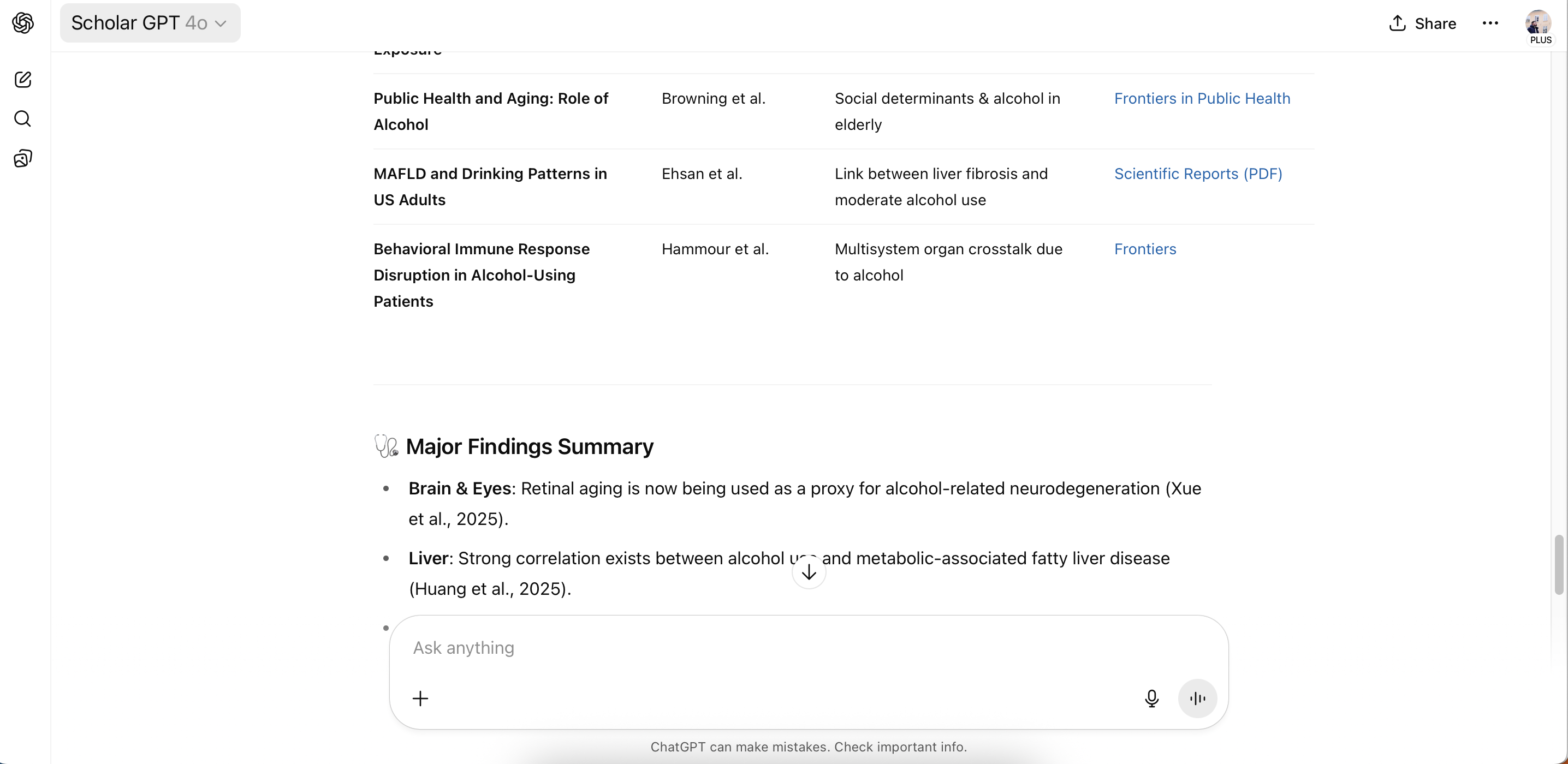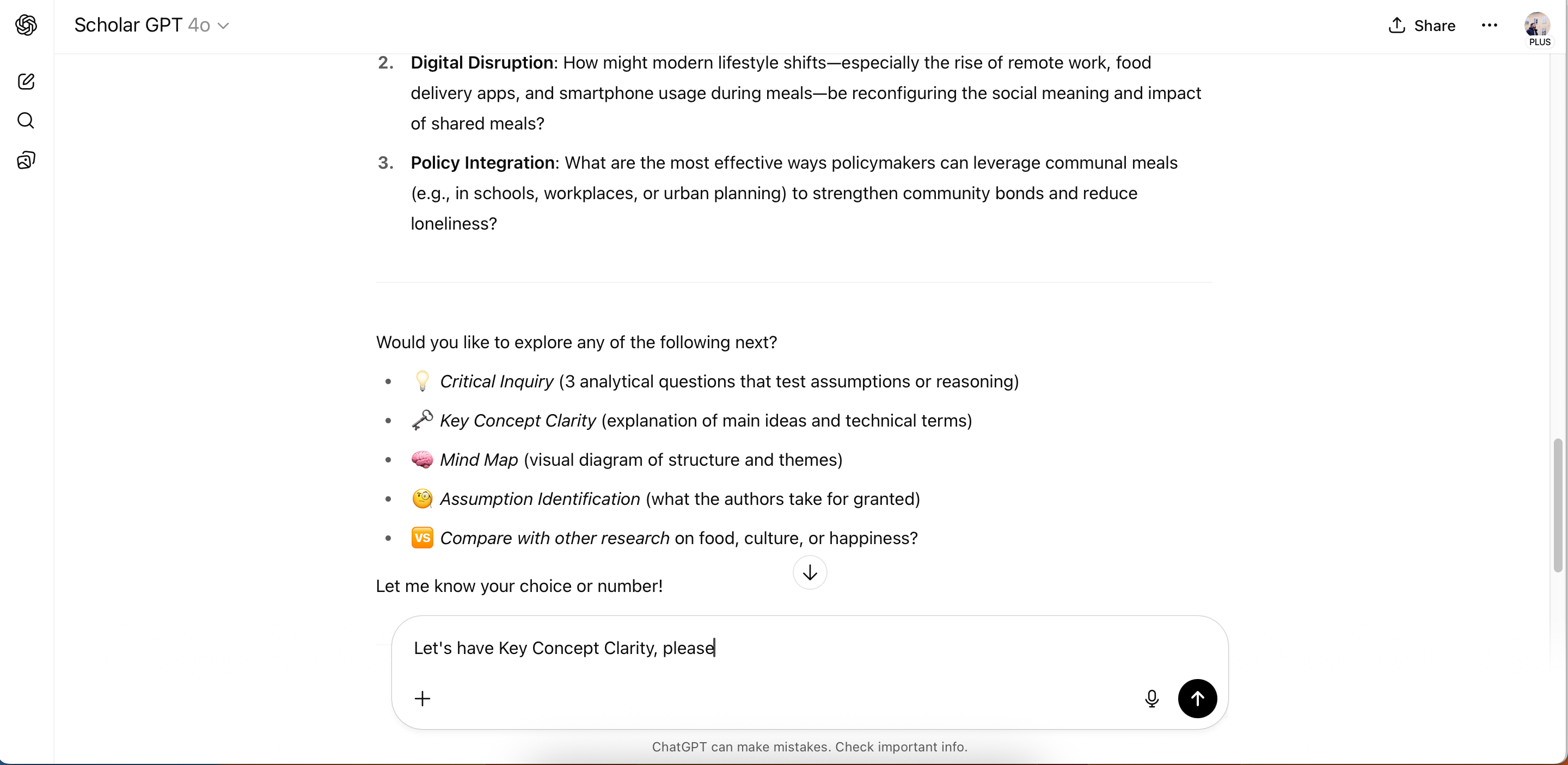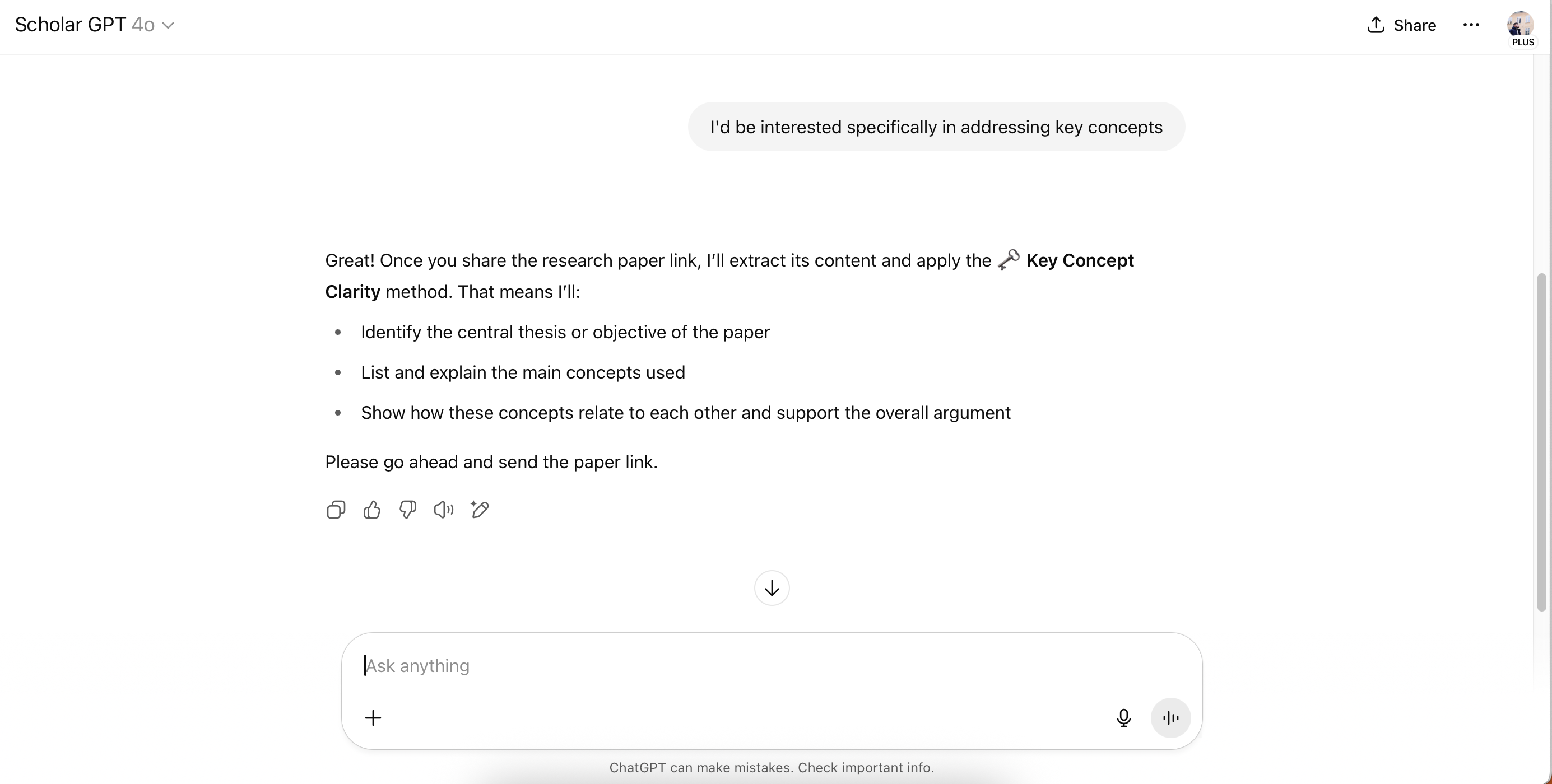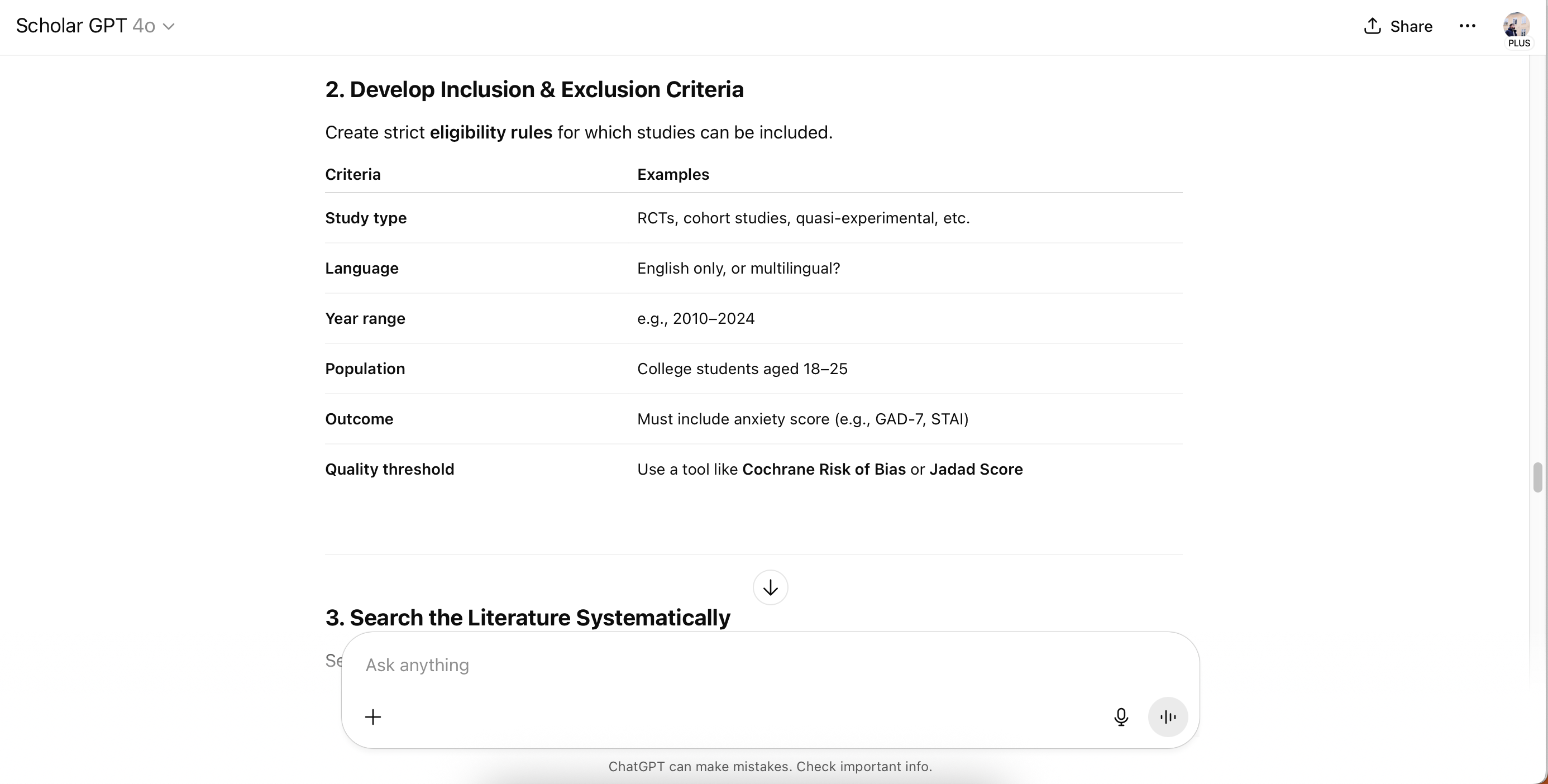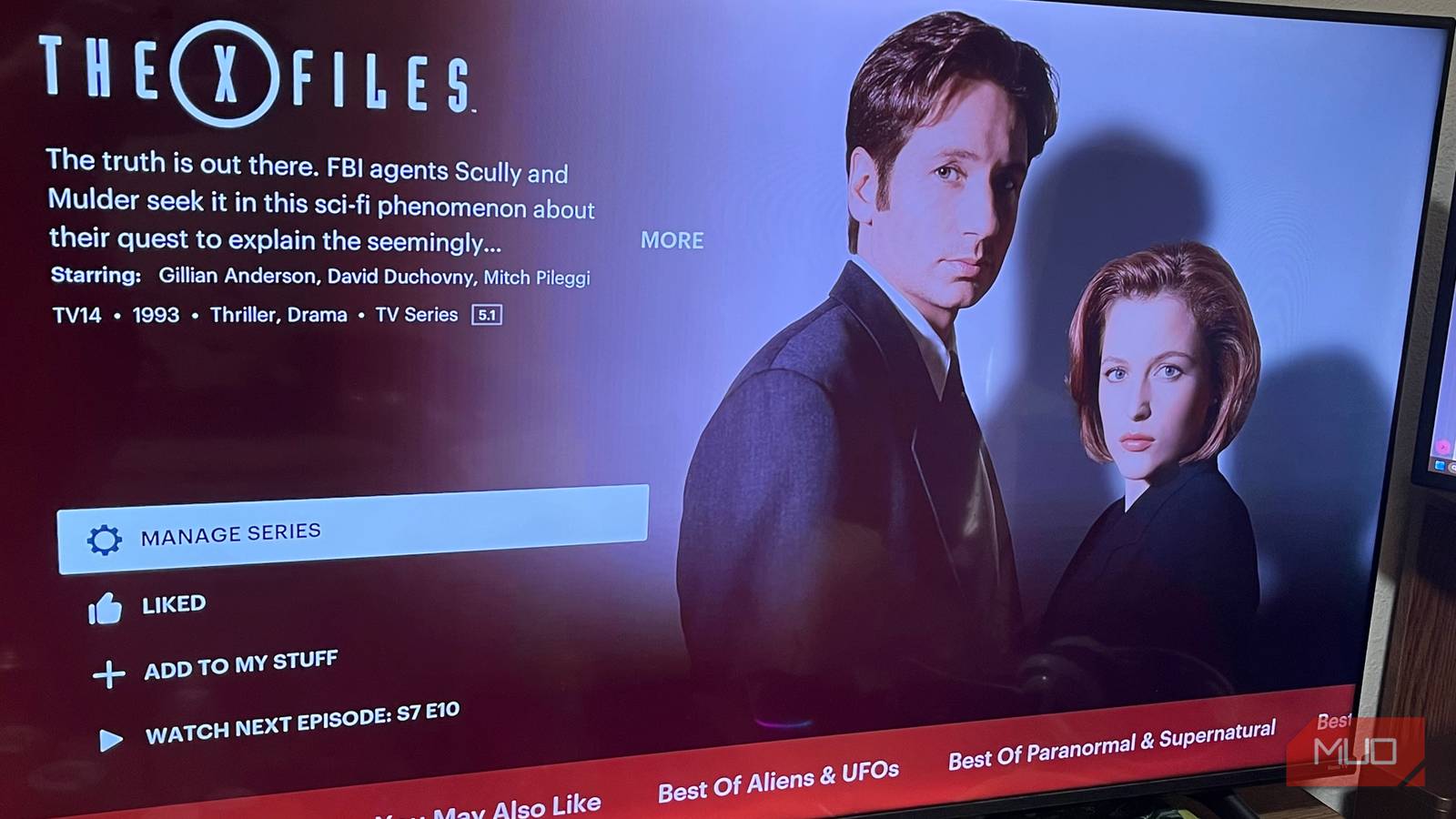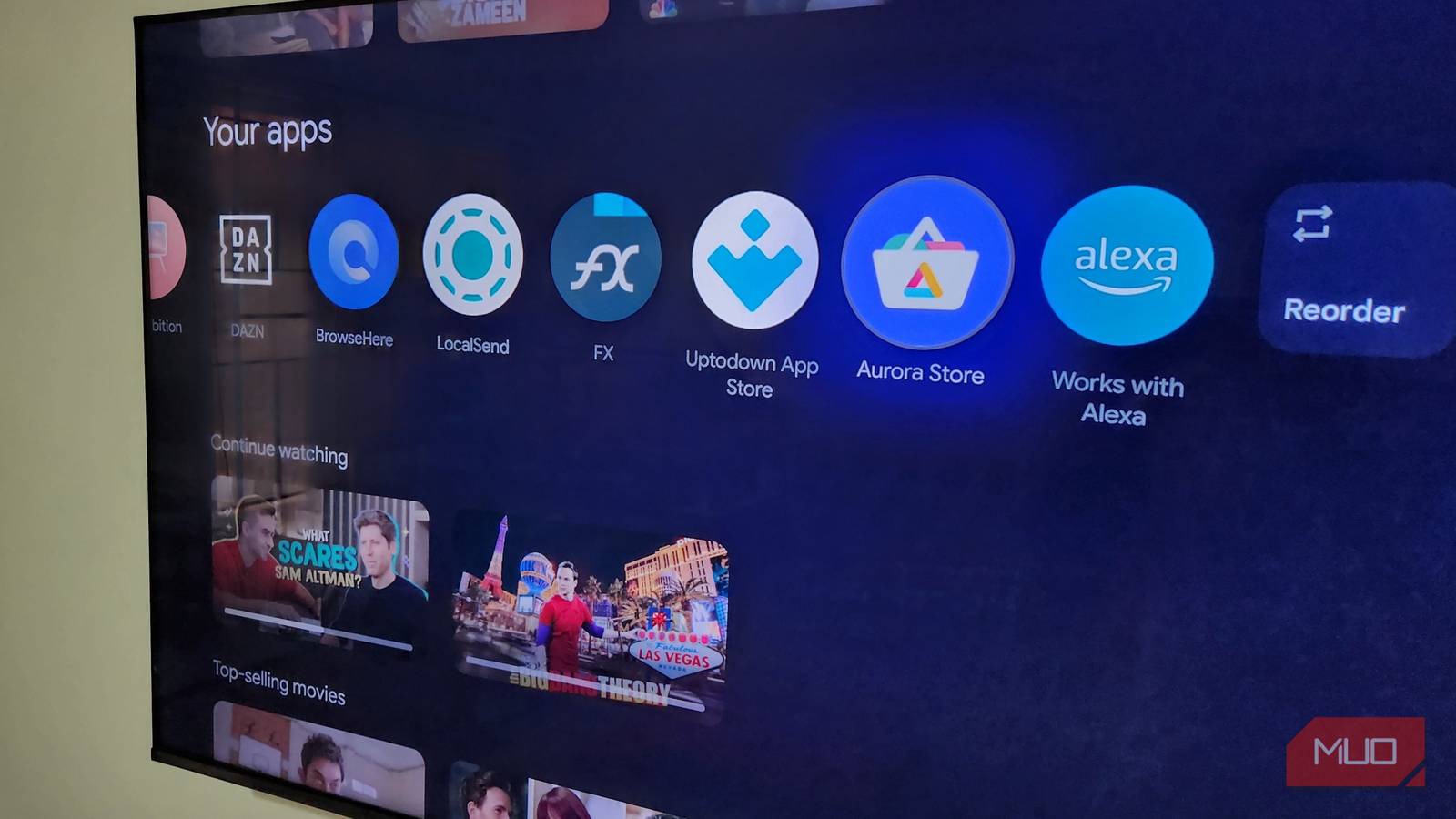For all its advantages, ChatGPT’s Deep Research tool still has some big flaws. One of the biggest is that it struggles to find up-to-date information, which can make studying more time-consuming. Scholar GPT, a custom GPT, can help you solve this problem.
Finding Recent Information
When I first used ChatGPT Deep Research, I tested the tool in multiple categories. While it excelled in many (it beat Copilot’s equivalent in various categories), it struggled to find up-to-date information. Much of the time, I’d have issues finding anything relevant that was newer than two years old. As far as I was concerned, this defeated the point of using the tool.
Scholar GPT is much better at finding recent information. Once I prompt to find me the latest research, I receive a compiled list of facts, with links to the original source. It makes it very easy to organize everything.
In some instances, I receive a list of bullet points without links to the original resource. However, I can then find links to useful online sources when I scroll further down. Scholar GPT’s table view presents everything in an easily digestible format.
Reading Research Documents
In addition to finding relevant and timely information, Scholar GPT can read research documents and synthesize their findings. This feature is helpful for shorter documents as it can provide a handy summary, meaning you should have fewer problems extracting the most essential details from whatever you’re reading.
Reading and rationalizing research is also helpful for more comprehensive PDFs. Once you upload the document, Scholar GPT provides a quick overview. Beyond the key findings, the tool also seeks to provide a balanced approach and question whether correlation equals causation.
After conducting the initial research, Scholar GPT offers the opportunity to delve deeper. For example, you can use the custom GPT to develop mind maps, explain things in simpler terms, or compare its findings with other research on the same topic. You can do this for each document you want to research and bring your ideas together later for more effective studying.
Assessing Links
I usually prefer uploading files to ChatGPT because historically, the app has been hit-and-miss when trying to get it to read links. However, Scholar GPT does a pretty good job of doing so. Before uploading the link, I can add a disclaimer to the chat stating I’ll be sharing it.
Scholar GPT will then ask me if I wish to explore specific themes, and if so, to say these. Doing so means I can get more accurate responses and don’t have to worry about needing to correct everything later.
Once I’ve uploaded the link, Scholar GPT then goes through it and reads the page or document. Thereafter, it’ll give an overview of the most important concepts to explore. Everything is presented well, and I can ask follow-up questions if I need more information.
When asking Scholar GPT to assess links, I suggest asking it for a critical analysis and to potentially generate alternative points of view. Doing so will give you better balance and make your learning more rational, especially if the paper seems more biased.
Helping With Specific Research Tips
In addition to reading research papers, Scholar GPT can help you research more effectively in general. For example, you can use it to understand more about specific ways to improve your learning. As one of the initial prompts, you can ask the chatbot to:
“Type “LS” to list my built-in critical reading skills”
From here, Scholar GPT’s initial answer gives you several critical reading methods to consider. You will also see a short description of each. As a follow-up, you can ask Scholar GPT something like:
“Can you help me learn more about [number]?”
From here, the GPT provides a more comprehensive overview. Additionally, it’s possible to complete practice tasks. This is one of the best ways to use ChatGPT in school.
Building Research Strategies
While you can replicate common frameworks when studying, not all of them will work for you. As a result, you need to be more strategic and find a way to best meet your skills. Scholar GPT can help with this. To do this, enter the prompt:
“Can you list some of the [number] most common research strategies with a quick description for each?”
Scholar GPT will then provide a list. From here, you can ask the tool to help develop a specific strategy. You’ll receive a comprehensive overview you can work with and customize as needed.
Is Scholar GPT a Complete Deep Research Replacement?
Scholar GPT has plenty of helpful features, and it’s excellent at finding the latest research. Moreover, you can use the tool to develop comprehensive strategies that’ll help you go further with your studies.
For academic research, I think Scholar GPT is much better than Deep Research. It’s better at finding more accurate information and also runs much faster. However, I’d still use ChatGPT Deep Research if it weren’t for studying, as while Scholar GPT is better at reading research papers, Deep Research excels in finding shopping recommendations and more day-to-day findings.
